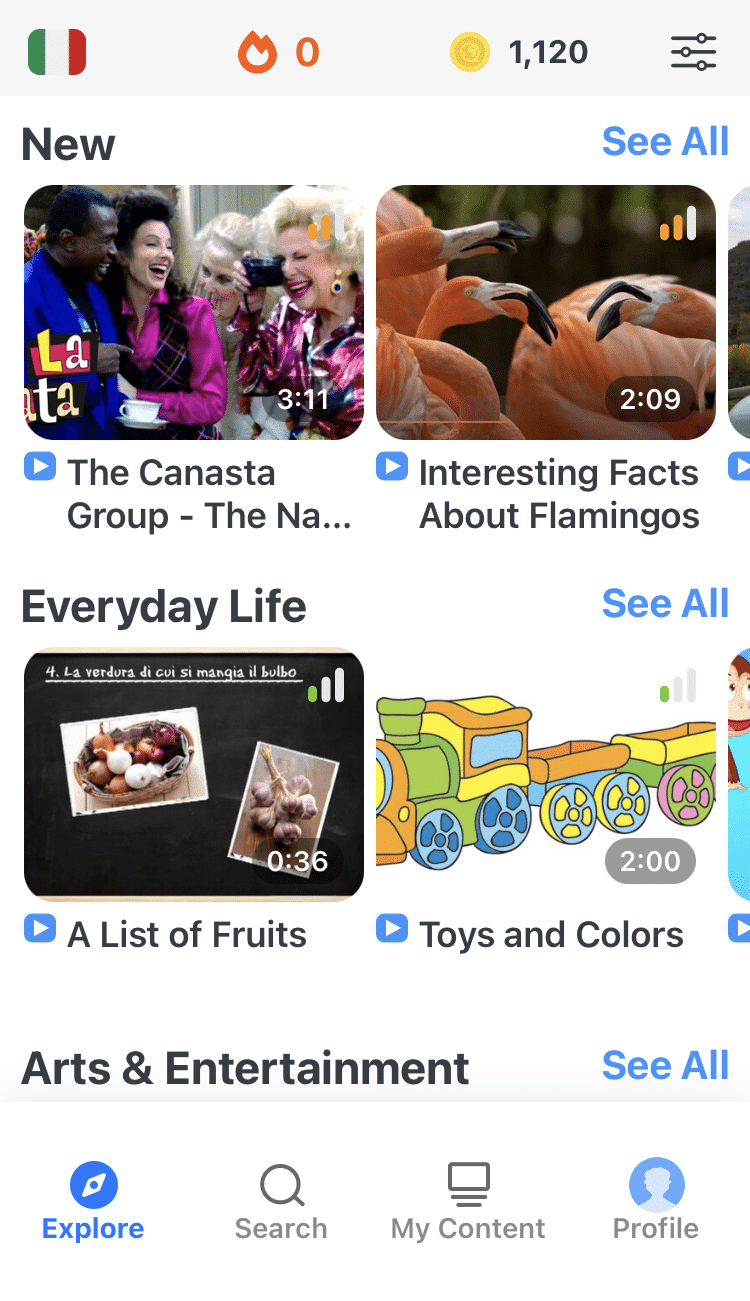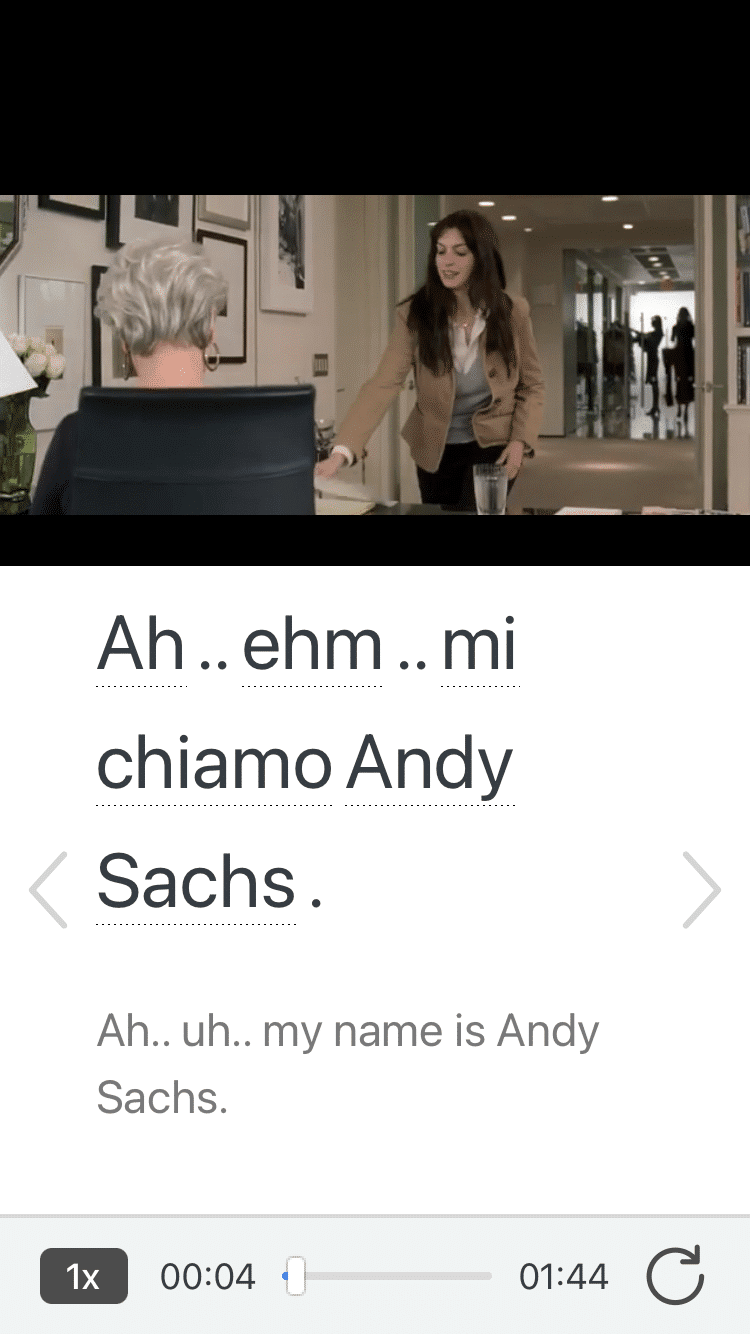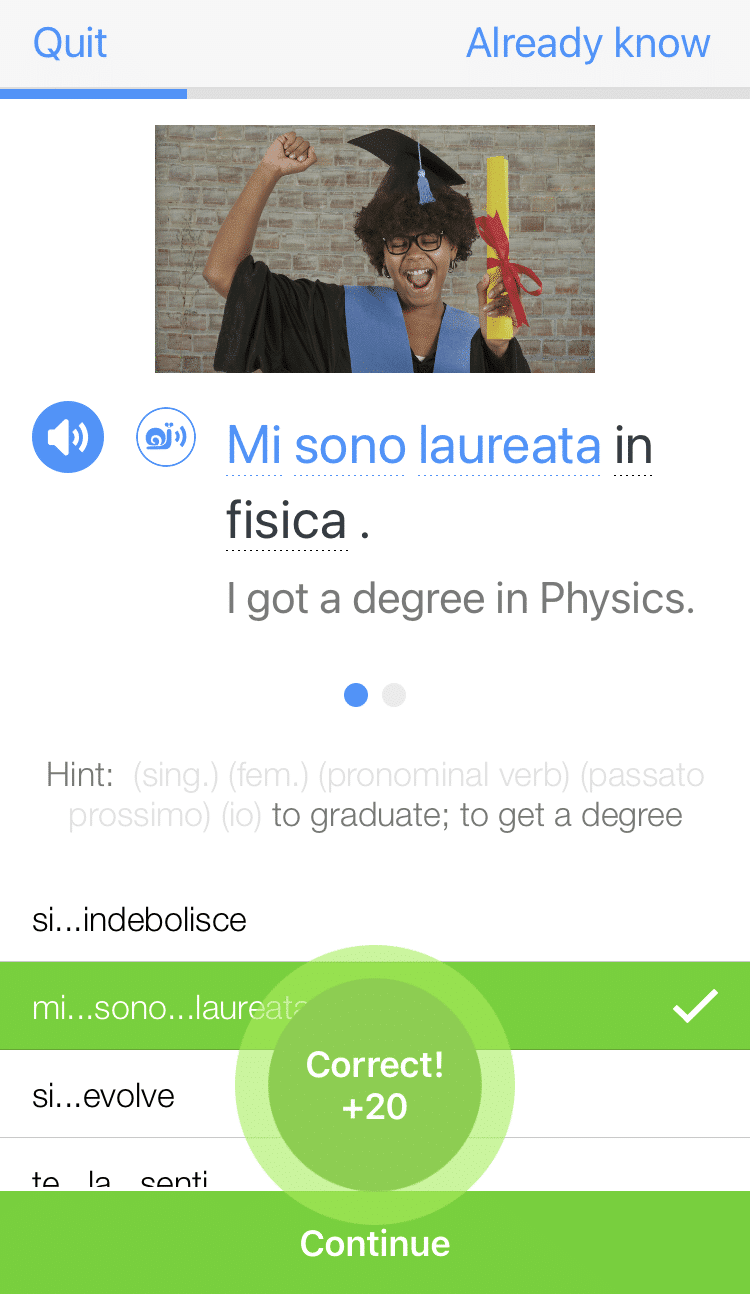
Italian Adverbs of Frequency: Rules, Examples and More
Mai dire mai… (Never say never…)
Especially when it comes to learning Italian adverbs of frequency.
I mean, without adverbs of frequency, you literally can’t ever say “never.”
If you hadn’t already guessed, “never” is an adverb of frequency, just like “always” or “sometimes.” These words indicate how often something happens and are some of the most common words in any language.
In this post, I’ll teach you the most common Italian adverbs of frequency and how to use them like a native speaker!
Contents
- What Are Italian Adverbs of Frequency?
- How Are Adverbs of Frequency Different in Italian and English?
- 7 Most Common Italian Adverbs of Frequency
- Common Italian Expressions with Adverbs of Frequency
- Non è sempre domenica. (It can’t always be Sunday.)
- Chi troppo si fida, spesso grida. (He who trusts too much will often scream.)
- Mai piangere sul latte versato: si aggiunge bagnato al bagnato. (Never cry over spilled milk: you’ll make what’s wet wetter.)
- Al cane vecchio non dire mai va’ a cuccia. (Never tell an old dog to go to bed.)
- Cambia più spesso di pensiero che di camicia! (He changes his mind more often than his shirt!)
- And One More Thing...
Download: This blog post is available as a convenient and portable PDF that you can take anywhere. Click here to get a copy. (Download)
What Are Italian Adverbs of Frequency?
As hinted above, adverbs of frequency describe how often something happens without expressing a specific time. A good way to keep this in mind is to remember that the word “frequently” is, itself, an adverb of frequency.
Does it tell you how often something happens? Yes. Does it tell you precisely when? No, it doesn’t.
Other adverbs of frequency in English include: “always,” “sometimes,” “never,” “hardly ever,” “often,” “usually,” “normally,” “rarely,” “regularly,” “seldom,” “generally,” etc.
Later in this post you’ll see that there are numerous equivalent Italian adverbs of frequency. But first, let’s look at the grammar behind how adverbs of frequency are used in Italian vs. what you may be familiar with in English.
How Are Adverbs of Frequency Different in Italian and English?
Blah blah blah… yes, we know, grammar is boring. But this little tidbit is more like a language hack that’ll help you unlock Italian adverbs of frequency.
Adverbs Go After the Verb in Italian
In English, adverbs usually go before the main verb.
I rarely visit my hometown.
One important exception is that adverbs of frequency are placed after the verb “to be.”
I am never late.
In Italian, adverbs are usually placed after the main verb.
Io vado sempre al supermercato. (I always go to the supermarket.)
Io sono sempre stanco. (I am always tired.)
Notice that this rule is the opposite of the rule in English, and that it doesn’t change for the verb essere (to be).
Certain Adverbs of Frequency Can Start a Sentence
Sometimes, adverbs of frequency can be placed at the beginning of a sentence (see what we did there?). This occurs in both English and Italian. But it only applies to some adverbs, such as “sometimes,” “usually,” “generally” and “normally” in English.
In Italian, this rule typically applies to di solito (usually) and ogni tanto (sometimes) and their synonyms, though Italian is a bit more liberal about adverb placement. When emphasizing, Italians may place other adverbs of frequency at the beginning of a sentence.
You Don’t Have to Fear Double Negatives
A big difference in adverbial use between English and Italian is that in Italian, the adverbs mai (never) and quasi mai (hardly ever) need negative phrases.
Non vado mai al supermercato. (I never go to the supermarket.)
The Italian verb non vado translates to “I don’t go” in English. This is difficult for us to wrap our heads around because it feels like we’re saying “I don’t never go to the supermarket.” Double negatives are a no-no in English, so this can be quite the hurdle for our brains to make.
Luckily, it’s pretty easy to get used to.
7 Most Common Italian Adverbs of Frequency
It’s time to jump into our complete list of adverbs of frequency in Italian.
1. Sempre (Always)
Andiamo sempre in spiaggia la domenica. (We always go to the beach on Sunday.)
Marco sta sempre bene. (Marco is always well.)
Quando ero giovane, avevo sempre paura del buio. (When I was young, I was always afraid of the dark.)
2. Di solito (Usually)
Synonyms: solitamente , normalmente , generalmente
Di solito mi sveglio alle 7. (I usually wake up at 7 a.m.)
Le risposte si trovano di solito alla pagina 96. (The answers are usually found on page 96.)
Di solito prendo il treno che parte da Firenze quando vado a Roma. (I usually take the train from Florence when I go to Rome.)
3. Spesso (Often)
Synonyms: frequentemente
Non vanno spesso a teatro. (They don’t often go to the theater.)
Ho mangiato spesso il gelato l’estate scorsa. (I often ate ice cream last summer.)
Pranzate spesso in terrazza? (Do you often have lunch on the terrace?)
4. Ogni tanto (Sometimes)
Synonyms: Qualche volta , a volte
Ogni tanto facciamo una cena da Antonio. (We sometimes have dinner at Antonio’s.)
Prendo le vitamine ogni tanto. Mi fanno bene. (I sometimes take vitamins. They are good for me.)
Ogni tanto ho voglia di mangiare il sedano. (Sometimes, I have a desire to eat celery.)
5. Raramente (Rarely)
Marta viene raramente quando facciamo una festa. (Marta rarely comes when we have parties.)
Raramente bevo il vino. (I rarely drink wine.)
Perché vai cosí raramente al cinema? (Why do you so rarely go to the cinema?)
6. Quasi mai (Hardly ever)
Non ho quasi mai voglia di andare a letto presto. (I hardly ever feel like going to bed early.)
Mi piace dipingere, ma non lo faccio quasi mai. (I like to paint, but I hardly ever do it.)
Non facciamo quasi mai le vacanze all’estero. (We hardly ever spend the holidays abroad.)
7. Mai (Never)
Non sono mai andato in Spagna. (I’ve never been to Spain.)
Non apriamo mai le finestre quando fa freddo. (We never open the windows when it’s cold out.)
Perché non fai mai i compiti a casa? (Why don’t you ever do your homework?)
Seeing Italian adverbs of frequency in context can help you understand both their meaning and use.
For example, you could listen out for them in different types of Italian content, like movies or TV shows, or you could even try using an immersive language learning program like FluentU.
FluentU takes authentic videos—like music videos, movie trailers, news and inspiring talks—and turns them into personalized language learning lessons.
You can try FluentU for free for 2 weeks. Check out the website or download the iOS app or Android app.
P.S. Click here to take advantage of our current sale! (Expires at the end of this month.)
Common Italian Expressions with Adverbs of Frequency
The best part about learning a new language is learning the slang and the local figures of speech. Here are a bunch of expressions that contain Italian adverbs of frequency:
Non è sempre domenica. (It can’t always be Sunday.)
This is a short and sweet expression that translates more literally to, “You can’t always get what you want.”
It comes from the fact that Italy used to have a six-day work/school week, with Sunday being the only day off.
Chi troppo si fida, spesso grida. (He who trusts too much will often scream.)
This one is one to use with your gullible friends.
Mai piangere sul latte versato: si aggiunge bagnato al bagnato. (Never cry over spilled milk: you’ll make what’s wet wetter.)
This is similar to our expression in English, but has a slightly different meaning.
Ours is more like, “what’s done is done.” The Italian version elaborates and means “fretting over what you can’t change will only make things worse.”
Al cane vecchio non dire mai va’ a cuccia. (Never tell an old dog to go to bed.)
This one is a bit reminiscent of our “you can’t teach an old dog new tricks.”
It basically means that you should never make demands of those that you should respect (mainly, the elderly).
Cambia più spesso di pensiero che di camicia! (He changes his mind more often than his shirt!)
Here’s a fun one to describe an indecisive person or to get under the skin of your friend that always backs out at the last minute.
If you’ve enjoyed these, there are a ton more fun expressions with Italian adverbs of frequency. Check out this list of Italian sayings and try to find some more on your own.
As you’ve seen, Italian adverbs of frequency are absolutely essential.
So, the next time someone asks you, “Fai i tuoi compiti?” (Do you do your homework?), a sly “Sempre” in return will do just fine.
And if someone says “Non parlerai mai abbastanza bene per flirtare con quella ragazza!” (You’ll never speak well enough to flirt with that girl!), just give a classic Italian wink and say, “Mai dire mai” .
Download: This blog post is available as a convenient and portable PDF that you can take anywhere. Click here to get a copy. (Download)
And One More Thing...
If you're as busy as most of us, you don't always have time for lengthy language lessons. The solution? FluentU!
Learn Italian with funny commericals, documentary excerpts and web series, as you can see here:

FluentU helps you get comfortable with everyday Italian by combining all the benefits of complete immersion and native-level conversations with interactive subtitles. Tap on any word to instantly see an image, in-context definition, example sentences and other videos in which the word is used.

Access a complete interactive transcript of every video under the Dialogue tab, and review words and phrases with convenient audio clips under Vocab.

Once you've watched a video, you can use FluentU's quizzes to actively practice all the vocabulary in that video. Swipe left or right to see more examples of the word you’re on.

FluentU will even keep track of all the Italian words you’re learning, and give you extra practice with difficult words. Plus, it'll tell you exactly when it's time for review. Now that's a 100% personalized experience!
The best part? You can try FluentU for free with a trial.
Start using the FluentU website on your computer or tablet or, better yet, download the FluentU app from the iTunes or Google Play store. Click here to take advantage of our current sale! (Expires at the end of this month.)



